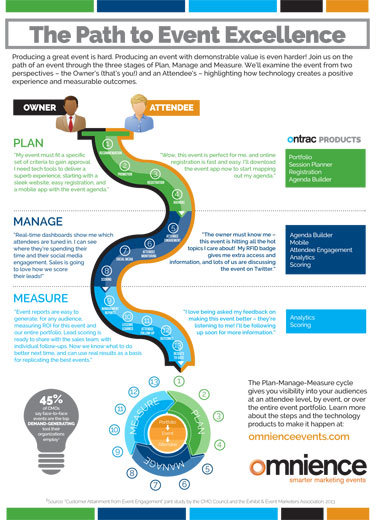A Tale Of Two Leads
Let’s examine a classic source of conflict between Marketing and Sales: lead management.
- Company A’s marketing department forwards a lead to a sales rep, Arnold. He gets hundreds of these every month and feels that most leads from marketing are not worth the time it takes for follow up. But, trying to exercise due diligence, he opens the email. Seconds later, seeing that this lead, too, is deficient in qualifying information, he deletes the email. Five months later, unknown to Arnold, the lead he threw away becomes a hot prospect — for a competitor.
- Now, let’s see how another lead was handled in Company B. A sales rep, Paula, gets a lead by email from Marketing. This lead has been qualified and scored before it was passed on to Sales. Paula reaches for her phone when she sees that the lead attended a webinar last month and is now a prospect for $200,000 of new revenue.
Obviously, Company A and Company B have vastly different lead management processes. Company A does what 65% of B2B marketers do (according to Marketing Sherpa’s 2012 Marketing Benchmark Report): When leads are received, Marketing simply throws them over the fence to Sales for handling. There’s no filtering. No qualification. No actionable intelligence. No nurturing.
Another dismaying finding from Marketing Sherpa’s survey: 73% of all B2B leads are not sales-ready. As David Kirkpatrick noted in the same article, “The big lesson here is that our research shows that most leads are not ready for Sales, and because of that reason, need nurturing.”
Good point! Volumes have been written on lead nurturing, a subject we will probably touch on occasionally in this blog. Here, I will simply point out that excellence in lead qualification, lead scoring and lead nurturing are vital in the world of marketing event management.
With a word-class lead management process—through a combination of marketing automation tools, event management tools, and best-practice processes—your company can drive more people to attend your revenue-generating events. Remember, inviting “old” leads to attend an information-packed event is a way to engage them and move them further along in the buying cycle.
After the event, your lead management processes put leads on different tracks. Some scored leads will be ready for a sales rep’s attention; others will need to demonstrate a higher propensity to buy before your reps get involved.




